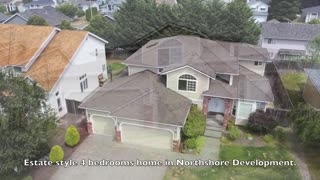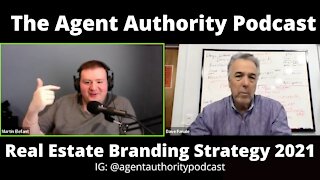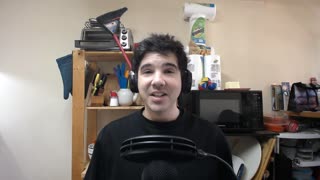Using Data to Understand Real Estate Markets, with Neal Bawa | Real Estate to Freedom Podcast #4
About Neal
Neal Bawa is the President & COO of Financial Attunement. He brings a new perspective to Real Estate Investing and Housing Trends using a data and business intelligence. We will discuss his unique analyzing strategies, some of the resources he uses for understanding markets, the local economy, and trends to make his buying decisions.
Contact him
Transcripts (automated)
Hi Neal, welcome to the show.
Thank you, Agostino, I'm jazzed to be on the show. Thank you for having me.
Excellent. Well, you know, maybe can give us a brief introduction before we get going here.
Sure. So I am very different from most of the folks that show up in your show. I'm not real estate royalty. I come from a technology background: tech company. Ran my own tech company, sold it and basically learned real estate investing the proceeds of that money and eventually fell in love with multifamily and here I am. I own and manage about $100 million dollars worth of real estate together with my partner, about 220 active investors invest with us and we buy multifamily and student housing properties in seven states. The portfolio is currently slightly larger than a thousand units. So I'm absolutely passionate about multifamily. I love every aspect of it and I'm just a blessed person that's had two separate careers and love them both.
Excellent. We know one of the things I know about you is that you're really big into data and demographics and I'm actually certain that you must get a lot of questions about the real estate market, what it's gonna look like for 2018 and beyond. Maybe give me your opinion on what the world and US economy currently look like. What do you see it today and where do you see it going?
Oh, I love that question and I have to tell you, I've been teaching, I teach about 2000 students a year, various different seminars and webinars and real estate. And I love answering this question because, for the most part, I'm bearish, right? So if you look at me in 2011, '12, '15, '17, I was bearish. This is a change for me, Agostino for the first time I'm bullish on the world economy. I'm very bullish on the US economy, but only in the short term. And I define short-term as 2018, 2019 and the first half of 2020. So that's about two years from now, give or take a month or two. I'm bullish in that timeframe and there are reasons for that. If you look at the world economy from 2011 to 2017, there was always something bad happening. Sometimes it was China blowing up with its real estate mess that happened. It was Japan with their ridiculously overwhelming debt. It was a European zone with, you know, Greece being dead, man walking and Italy having a banking crisis. There was always something to point to and say, this is what's affecting the world economy. This is what's slowing it down. Except for today in 2018 in the short run, we don't see any of those things. Every economy in the world, whether it's China or Japan or the European zone or Europe or us, is growing faster than they were last year. The International Monetary Fund just updated their forecast for world growth they have. They've also updated their forecasts for our growth. So in the short term, the next two years, the world economy looks very, very strong and I hope I don't jinx it.
Well, if you have that kind of power, you're a different type of investor. That's true. I mean, I'm guessing the bullish part, short-term, bearish part longterm, is that. How does that impact the job market then? I mean, I'm sure right now you see obviously the strong job market. Where do you see, I guess jobs in the future as far as the slow down hitting first, where do you see it happening? Retail, manufacturing, or anything along those lines?
Well, I think manufacturing and retail are more likely to get hit than some of the other places. I think services are going to do fine. Technology is going to do fine, but here's the key part of this. I do not think that the job slows down leads to an increase in the unemployment rate. It actually leads to a plateauing effect. So if you look at the unemployment rate, it peaked at 10% in 2010 and since then it's been dropping down. It's now currently at 4.1% by the end of the year. Most forecasters are forecasting that it will drop to 3.8 - 3.9%. I'm good with that. I think that's what's going to happen and then when it starts to pick up, it's going to be a very slow and gradual pickup, so it might take an entire quarter for it to take up one 10th of a point, so I'm not at this point, over the next two years, forecasting an increase in the unemployment rate, but we're definitely going to see a decrease, a slowdown in the number of new jobs being created. Which is why for real estate professionals, this is a very critical time to keep an eye on the jobs and not on the national jobs because they don't matter. Real estate is local. You've got to keep an eye on your...
-
 29:26
29:26
bulletproofcashflow
3 years agoSave Big Money with Cost Segregation, with Yonah Weiss | Real Estate to Freedom Podcast #3
157 -
 38:05
38:05
bulletproofcashflow
3 years ago $0.01 earnedBuilding a Multifamily Empire and Rescuing Deals, with Tim Bratz | Real Estate to Freedom Podcast #2
96 -
 1:08
1:08
Need Funding?
3 years ago $0.03 earnedFlip Real Estate With 0% Money
67 -
 1:50
1:50
Havanajohn
3 years agoReal Estate Investors
46 -
 2:55
2:55
Havanajohn
3 years agoReal Estate Leads
48 -
 1:01
1:01
NarcityCanada
3 years ago3 Ontario Cities Ranked Among The Most Affordable Real Estate Markets In Canada
29.9K2 -
 0:15
0:15
flowphotos
3 years agoReal Estate Video
78 -
 0:48
0:48
chuckarelei
3 years agoreal estate ad
96 -
 40:32
40:32
Agent Authority- Marketing & Branding Content for Real Estate Agents
3 years ago $0.02 earned2021 Real Estate Marketing Strategy | The Agent Authority Podcast w/ Dave Fanale
201 -
 0:53
0:53
ScottysThoughties
3 years agoReal estate agents
781